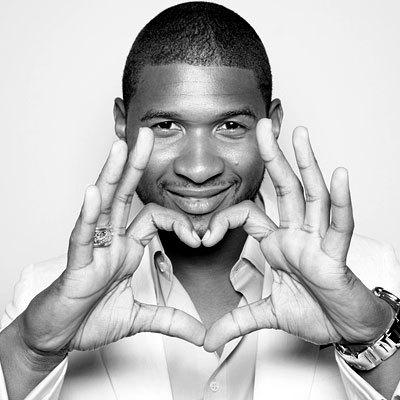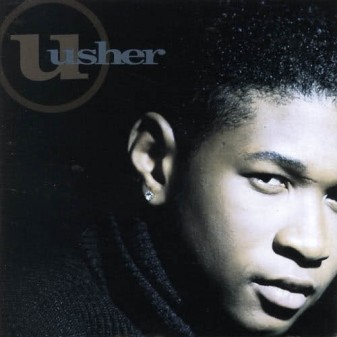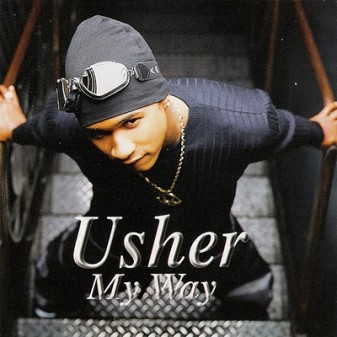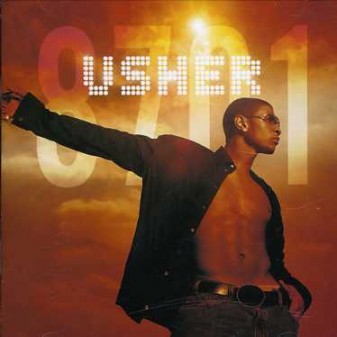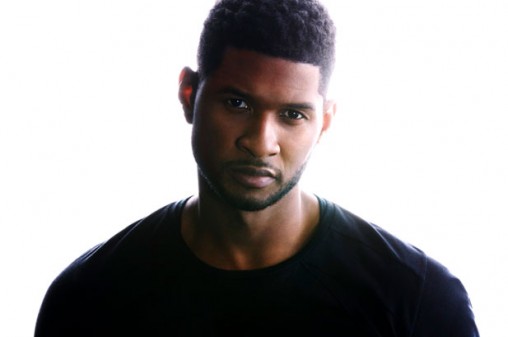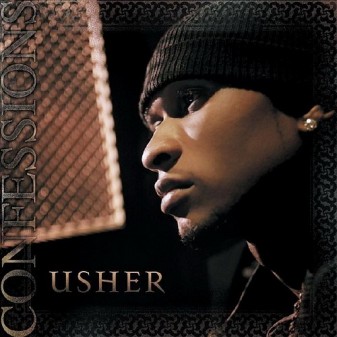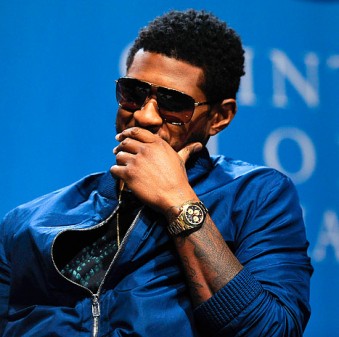Featured
OPINION: The Ways of the Modern Man -- the Usher Discography (Part I)

Soul singers. R&B singers. Pop singers. Out of all these, there’s only a handful that I will regularly listen to. Georg Levin is the self-deprecating intellectual. Bilal and Van Hunt are artistic geniuses that the mainstream will never understand. While I identify and can relate to these three artists more, there is always a part of me that wants to be Usher Raymond IV. Who wouldn’t? It is hard to feel sorry for a guy taking private jets to France and fornicating with models – often times – inside the club! I doubt that Georg Levin or Van Hunt have done that (more than twice). Georg might still have to take the Eurail to France--- from Germany.
Usher is more of an entertainer than a songwriter/artist. Therefore, his albums are often a collection of singles rather than a conceptual cohesive whole. However, he is an underrated singer and through his song selection, personality, and delivery – his music is more compelling music than 99 percent of neo-soul or “real soul” artists. I would listen to Usher over Dwele (post Subject) and Musiq any day, any month, any time. Usher is the most prolific R&B artist of our generation, and with his latest releases still being listened to by kids and clubbers all over the globe, none of this will change any time soon. His influence can be heard in the current crop of R&B and pop artists, who are essentially doing Usher impersonations. Usher also taught Chris Brown that notgiveafuckness, and for better or worse, Brown took it to another level.
Most importantly, Usher’s music personifies the modern man. While Brown and his contemporaries may have taken this modern manhood to a ridiculous cartoonish level with their attitudes, it was Usher who changed the game. Usher is Michael Jordan, Brown is Kobe and Lebron combined and the rest are Kobe wannabes.
In mainstream R&B (excluding neo-soul which can be bland and boring), gone are the emotional core or loving sentiments that was prevalent in music of previous eras. Even with all their songs that were strictly sexual, R. Kelly, Jodeci, etc. sounded believable when singing about lost love, heartbreak, and relationship issues. (See, “When A Woman’s Fed Up,” “One Man,” “My Heart Belongs To You,” “Forever My Lady,” etc.) Their songs contained a plausible undercurrent of love and genuine emotions, which are now completely devoid in mainstream R&B. Even Trey Songz who followed the R.Kelly model cannot create many songs with a strong emotional connection outside of sex. Just as it is in modern dating or life, there is no need for an emotional core/connection to be successful, so today’s music reflects this reality. Usher was the artist who completely bought into this modern mindset. His music is gloss and style, over emotional honesty or being believable. Most of his best songs are about: bullshitting in a club, running game to get sex, bragging (whether on a club track or a slow jam) about how good he is in bed, discussing occasions when he feels guilty (for a short moment), or having meaningless sex with someone he should not be having sex with. However, not all Usher songs are without emotions, soul, honesty, and vulnerability – or joy. This is what separates him from Brown, Songz, Mario, and all of his mainstream R&B descendants. When Usher provides these moments, it mirrors when men are the most vulnerable and joyous.
Modern men are not the most vulnerable or thoughtful when they are in love (if they ever get there), it is when they realized they fucked up and lost what they should have held on to, or when they are torn between lovers, or between love and lust, but still getting theirs. Additionally, men do not celebrate love, as much as they enjoy running game and seeing the end result – i.e. fornicating. Hence, as aforementioned, most of Usher’s most emotional and vulnerable moments are when he is having pretty, beautiful, meaningless sex or when he feels guilty. And the tracks that Usher sounds the most joyful and soulful on are usually the tracks about trying to get a woman to fuck him, or having sex with a woman that is temporary or one that he should not be having sex with. Even on guilty songs, a listener can sense that just like the modern man, Usher doesn’t wallow in guilt for too long before finding temporary joy – in the next hottest thing of the moment and moving on.
After discussing the content of his music with friends, and hearing statements ranging from “each of his album has four good songs,” to “Usher is emotionally insecure,” I decided to listen to all his music from 1994 to 2012 for about two weeks straight. It was compelling, nostalgic, relatable, incredulous, cringe-worthy, and outright painful, sometimes, within the same hour, and sounded like a bad relationship or a string of meaningless sexual encounters – which is similar to the highlights of Usher’s music. So, almost track by track, pop ya collar, and let’s go.
Usher (1994)
This album, filled with a list of prominent 1990s producers such as Dave “Jam” Hall, Devante Swing, Chucky Thompson, and Brian Alexander Morgan, was an enjoyable albeit unmemorable listen. Re-listening to this album will cause severe cases of nostalgia for anyone in my generation even if the songs appeared to be throwaway tracks from these acclaimed producers. “I’ll Make It Right” and “I’ll Show You Love,” matches PG-13 come-ons with a decent hip-hop track. The Jodeci B-Team song, “Can U Get Wit It,” brought up a disturbing image of a 15 or 16 year old “spreading himself around,” I thought to myself, "What if a 15 or 16 year old girl was singing this."
“Think of You” is similar to “I’ll Make It Right,” but has a better hook, and Usher sounds more comfortable on the track. Morgan’s “Crazy” is a pleasant sounding post new jack mid-tempo track about innocent young love, a track that would have no place in today’s more carnal mainstream R&B world. It sounds incredibly refreshing listening to it damn near twenty years later. The bridge, the hook, and lightly programmed drums will bring out the hopeless romantic in non-psychopathic individuals. “Slow Love” is forgettable fodder; it is sexualized, but not sexy. “Many Ways” and “Final Goodbye” are decent, but it appeared that Dave “Jam” Hall saved his best tracks for Intro and Mary J. Blige. However, these songs still sound great on a thinking/reminiscing drive in your car, and both songs have signature 1990s keyboards and programmed drums, as well as romantic hopeful lyrics. “Love Was Here” and “Whispers” are average quiet storm tracks, the type of tracks you play before the really good love songs. "You Took My Heart" is another romantic song with sincere unrequited lyrics that would never be recorded today.
There is nothing classic or outstanding here, but there is nothing too horrific either. Usher’s debut is pleasant background music if you are craving 1990s nostalgia. Vocally, Usher shows decent range, but he has not found his personality, or (as they say) real swag, yet. Usher was probably the record label’s attempt at of a more urban Tevin Campbell sound. But unlike, I’m Ready, there are not any perfect pop/soul moments.
My Way (1997)
Not all clichés are bad. The Asians DJ and the Mexican hipster in LA with the love for the Smiths are not bad clichés. The 35 to 45 dude (of any race) wearing Affliction T-Shirt and True Religion jeans or the cat in the linen shirt and hat with the pinky ring at Jazz Festivals – these are bad clichés. And this album is comparable to the latter. Every mid to late 1990s hip-hop infused R&B clichés that have ever existed can be found on My Way: another “Footsteps in the Dark” sample on “One Day You’ll Be Mine,” the simplified Spanish guitar on “Nice and Slow,” which is a good example of how good songwriting can overcome trite production, and the same damn guitar over a hip-hop beat on “You Make Me Wanna.” Some of these songs became hits and are damn catchy, but it doesn’t mean that you want to hear them again; well, maybe hear them for fifty seconds to remember where you were when the album came out, but that’s about it.
“Just Like Me,” which references masturbation and late night booty calls, is a mature hip-hop soul song which sounds like a good idea, but fails in the execution. “Slow Jam” sounds like karaoke with a Casio keyboard with big name singers. The title track is the genesis of Usher’s sexual braggadocio and notgiveafuckness. I doubt anyone remembers “Come Back,” which is a less than convincing hip-hop plea for his girl to well, come back. “I Will” is a decent pop-soul track, but the verses and lyrics do not match the hook. “Bedtime,” is a mediocre Babyface composition, which sums up most of the album: top flight producers finding some catchy melodies, an occasional good hook, and making music that kids in 1997 would love because they sound good in the moment – but is unlistenable afterwards.
8701 (2001)
8701 is a collection of nice singles, a few classics, and straight up bullshit songs. Usher is a talented entertainer, he is not a true songwriter. So, while Usher is (continuously) prolific and consistent in the number of albums he puts out, to expect Usher to release a concept or a cohesive themed album is a bit unfair. Usher can be compared to Michael Jackson, and MJ never released any deep artistic conceptual albums either. (While each of MJ’s albums had a different sound/feel, they were all a collection of singles, with a few decent album tracks, and not a cohesive themed concept album.)
8701 is also the blueprint for all future mainstream R&B releases from male artists and vocal groups throughout the millennium and into the oughts. Confessions perfected this blueprint, but 8701 was the beginning. “U Remind Me,” is a pop song with an R&B feel, even if the theme is simple, its hook and catchiness guaranteed that it was a hit. “I Don’t Know,” is the “I don’t give a f&%^” club song. Even if it was not “Yeah!” or “Love In This Club,” the formula of having an “I don’t give a f&8^” club song was set, and artists like Chris Brown and Mario would follow it to varying degrees of success.
The mid-tempo effortless Usher is present on “’Twork It Out,” which brings in slightly older soul music fans. The song has a relatable premise, and Usher’s personality and underrated vocals makes the song an enjoyable listen. “U Got It Bad” and “U Don’t Have to Call” are the two classics on the album. The former is classic Usher, finding poignancy and profoundness in the harsh simplicity of love, lust, and relationships. The latter is the best song that Michael Jackson never recorded, if Michael had real sexuality and said, “F&^& you.”
Besides these aforementioned tracks, 8701 is filled with pleasant but forgettable songs. “If I Want To,” and “Hottest Thing,” are more ridiculous “I can get any girl” club bullshit, which artists now follow to the letter. Mainstream male R&B artists are now required to have these secondary bullshit songs. These songs are not quite filler, but they are not quality either. But Usher is like that guy with looks, money, and charisma running bullshit game at the bar – his bullshit still sounds better than other artists’ bullshit.
The assembly line ballads, “Can U Help Me,” and “How Do I Say,” take up the middle part of the album. The latter, which talks about saying "I love you" or seduction in a foreign language, is especially cringe worthy. (Usher should take notes (but I doubt that he has to) from Julio Iglesias who knows how to say, “Let’s go to bed,” in about fourteen different languages.) At the end of the album, we get to walk down memory lane with Usher on “Good Ol' Ghetto” and “U R The One.” These soulful tracks are overshadowed on this album, but have aged well over time, especially, when considering that near the end of the millennium, Usher will turn to pop almost exclusively.
Confessions (2004)
This was the last mega-selling R&B/Soul album – ever. But is Confessions a “classic”? A classic does not have to be timeless, it can captured a moment in time perfectly. Unlike what the record label or Usher may have you think, Confessions, like 8701 before it, is a collection of singles and not a concept or themed album. With the exception of “U Don’t Have to Call” and “U Got It Bad,” everything on Confessions sounds better than anything on 8701 and all of Usher-influenced imitators and their imitations that came after it. “Yeah!” is the perfect “I don’t give a f&^$” club anthem, it is over the top and edgy, but cool and not absurd. Artists, including Usher himself, are still trying to recreate another version of this song. The Just Blaze produced “Throwback,” as the titled suggested, is a matured hip-hop soul relationship song.
“Confessions (Part II)” and “Burn” are probably Jermaine Dupri’s last great tracks; the songs are simple, melodic, somewhat relatable and soulful but with enough pop hooks for the kids and the masses. Usher sounds so convincing on these tracks that you thought that he was the protagonist in the drama, but we all know now, these songs were Jermaine Dupri's reality. “Caught Up” is a bit bullshitty and nonsensical, but it is probably Usher’s best bullshitty and nonsensical song. “Superstar” is simple song for his female fans, but it works, the groove is soulful and hook is catchy. “Truth Hurts,” is breezy soulful mid-tempo Usher with a twist. It is one of those underrated Usher songs that are present in most of his albums except Versus. “Simple Things” sounds like an album cut from Boyz II Men’s II, and that’s a good thing. I find the typical braggadocio “Bad Girl,” simplistic and a bit ignorant, but I noticed that a lot of women like it, and it is another Usher song that other artists have been trying to imitate.
The ballads: “That’s What It’s Made For,” “Can U Handle It,” and “Do It To Me,” are solid. The latter is the best Prince tribute/imitation not done by D’Angelo. “That’s What It’s Made For,” is the perfect bedroom jam for someone that you want to fornicate with but truly don’t give a damn about – and in that way, it is the perfect Usher slow jam, and probably one of the three best ballads in the last fifteen years. The song, with its lust, urgency, and throwing all thoughts, consequences, and caution to the wind, is that good.
“Follow Me” closes out a nice collection of singles and album tracks that miraculously fit seemlessly together. The person/people who decided on the tracklist should get a hefty royalty check from album sales, 10 million sold in the U.S. and 20 million sold worldwide. Confessions appears to be a cohesive, classic, but it is really just a classic set of singles, above average album tracks, and a few secondary bullshit songs. Though songs in the latter category are few, their inclusion is what keeps Confessions from being a classic.
While listening to “Follow Me,” you realize that the important thing about this track is that at this point (2004, Confessions), you still believe Usher. You believe that wealth, women, and fame isn’t all that is cracked up to be, and that there is a part of Usher that just wants to chill and be faithful and honest to his homegirl from around the way. You believe that love and genuineness from his homegirl is better than fornicating with models and video hoes on private jets.
At this point, there is still an ounce, a trace, a sliver of honesty and sincerity to his music; this will soon change with Here I Stand, and unfortunately, it will change with all mainstream R&B as well, as sincerity and emotions will be completely tossed out the window for shallowness and instant gratification. But Usher would have you believe with a shrug and a sexy grin, that we should blame society, and not him. As society becomes more about instant gratification, wealth, and power, the artistry and craft of boxing and martial arts gives way to MMA. Passion and love give way to hook ups and bullshit sex. The need for quality of our relationships changed into the need for quantity of who we fucked or can fuck, by any means necessary – game is valued over sincerity. Ruthlessness and cunning are valued over compassion. And this is how we are perceived by other people around us, we are respected by what we have and who we can get. Usher is just playing his part, and all of us are similar to him in many ways. So, at the end of the day, Usher is right, it is not his fault. After all, you didn’t have to call. But you did, and it is okay.
